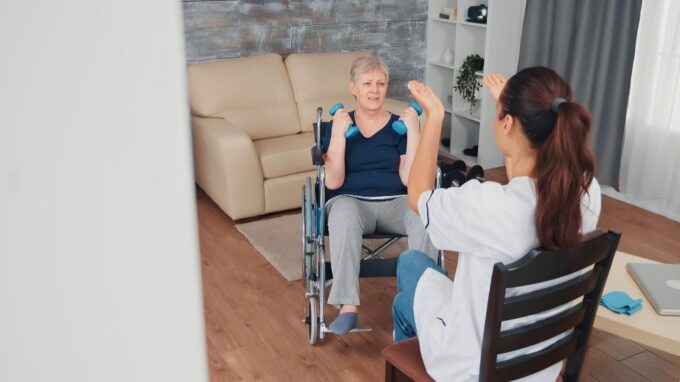Introduction
For many years, neurodisability has been largely associated with children. Most conversations revolve around early diagnosis, developmental support, and childhood interventions. However, as individuals grow older, the challenges do not simply disappear. Instead, Neurodisability in Adults comes with its own unique set of difficulties that affect quality of life, independence, and long-term health.
This blog sheds light on the often-overlooked aspects of Neurodisability in Adults, emphasizing the importance of awareness, ongoing care, and tailored support. By highlighting these challenges, we aim to foster greater understanding and compassion for those navigating life with neurodisability beyond childhood.
Transitioning from Childhood to Adulthood
The transition from childhood to adulthood can be particularly overwhelming for individuals with neurodisability. While pediatric care often provides structured systems of support, adult healthcare tends to focus on acute conditions rather than long-term management. Consequently, Neurodisability in Adults can leave many feeling underserved in medical and social systems.
Furthermore, adults with neurodisability face increased pressure to manage responsibilities such as employment, relationships, and daily living, making this phase even more demanding.
Health Challenges in Adulthood
Although childhood interventions may address some developmental concerns, adulthood brings new health-related issues. For example, mobility difficulties may worsen, communication challenges may become more complex, and secondary health complications may emerge.
Common health challenges include:
-
Chronic pain and fatigue
-
Reduced mobility and muscle weakness
-
Speech and swallowing difficulties
-
Higher risk of mental health issues like depression or anxiety
-
Secondary conditions, including epilepsy or cardiovascular problems
Therefore, addressing Neurodisability in Adults requires proactive and continuous medical attention.
Barriers to Independence
Independence is often seen as the hallmark of adulthood. Yet, for individuals living with neurodisability, achieving and maintaining independence is far from simple. Many adults rely on caregivers for daily tasks, while others struggle with societal barriers that limit opportunities for education, employment, and housing.
Moreover, stigma and lack of awareness add to these challenges. Despite advancements in inclusivity, workplaces and communities are still not always fully prepared to accommodate individuals with long-term neurological conditions.
Social and Emotional Impact
Beyond physical challenges, Neurodisability in Adults carries significant social and emotional weight. Many adults experience isolation, frustration, or low self-esteem because of their condition. The transition from being a child supported by family to an adult navigating complex social expectations can feel daunting.
Emotional well-being is just as critical as physical health. Building supportive communities, encouraging self-expression, and providing accessible mental health care play vital roles in ensuring that individuals feel valued and understood.
Importance of Lifelong Support
While childhood care lays the foundation, adulthood demands continuous attention and evolving strategies. Families and caregivers often carry much of the responsibility, but structured systems of support are essential.
Lifelong support must include:
-
Access to specialized neurologists and therapists
-
Training programs for independent living
-
Opportunities for employment and skill development
-
Social support networks to reduce isolation
-
Regular health monitoring to prevent secondary complications
Therefore, effective management of Neurodisability in Adults involves collaboration between medical professionals, caregivers, and communities.
The Role of Healthcare Providers
Healthcare providers play a crucial role in enhancing outcomes for adults with neurodisabilities. However, adult neurology often lacks the same resources and attention that pediatric cases receive. By ensuring comprehensive care, neurologists can help individuals achieve greater independence, manage symptoms effectively, and prevent complications.
Specialised doctors, such as Dr. Vivek, have dedicated their practice to addressing the complexities of adult neurological conditions, offering tailored treatment plans that extend far beyond the basics of symptom management.
Moving Toward Inclusive Societies
While medical interventions are crucial, social inclusivity is equally important. Societies must adapt to support the needs of adults with neurodisability. Accessible infrastructure, workplace accommodations, and public awareness campaigns can break down barriers and allow individuals to thrive.
Governments, NGOs, and community organisations must collaborate to create policies that ensure equal opportunities. Ultimately, inclusion is not charity—it is a right.
Conclusion
The journey of Neurodisability in Adults requires compassion, innovation, and unwavering support. Unlike the childhood phase, adulthood introduces additional complexities that demand holistic care and continuous attention. From healthcare access to independence and emotional well-being, the challenges are multifaceted and deeply personal.
By recognizing these realities, society can move closer to building inclusive systems that value every individual’s dignity and potential. With proper medical guidance and supportive networks, adults with neurodisability can lead fulfilling lives. If you are seeking guidance, the best neurologist in Dubai can provide expertise and support tailored to your needs.
FAQs
1. Who is affected by neurodisability in adulthood?
Adults with conditions such as cerebral palsy, epilepsy, or acquired brain injuries often experience neurodisability. It can also arise from genetic or developmental disorders that persist into adulthood.
2. What are the biggest challenges faced by adults with neurodisability?
The main challenges include reduced mobility, difficulty maintaining independence, limited social inclusion, and higher risks of secondary health conditions. Emotional well-being is also a significant concern.
3. How can families support adults with neurodisability?
Families can provide emotional support, assist with daily living, and encourage independence through training programs. Additionally, staying connected with healthcare providers ensures long-term stability.



